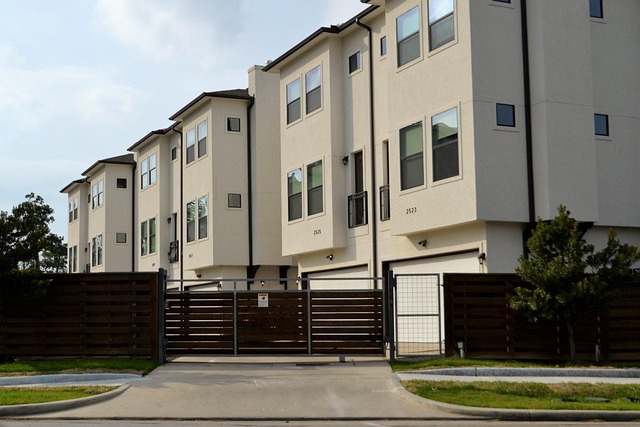Modular Manufacturing: Reshaping Production Paradigms
The convergence of advanced technologies and evolving consumer demands is propelling a transformative shift in industrial production. Modular manufacturing, a groundbreaking approach to product design and assembly, is emerging as a game-changer for businesses seeking enhanced flexibility, cost-efficiency, and market responsiveness. This innovative methodology promises to revolutionize traditional manufacturing processes, offering unprecedented adaptability in an increasingly dynamic global marketplace.

The concept of modular manufacturing isn’t entirely new, with roots tracing back to the mid-20th century. However, recent advancements in technology, coupled with evolving consumer preferences for personalized products, have catapulted this approach into the spotlight. Today, modular manufacturing is finding applications across diverse industries, from automotive and electronics to furniture and construction, reshaping how businesses conceptualize and execute their production strategies.
Historical Context and Industry Developments
The origins of modular manufacturing can be traced to the post-World War II era when industries sought more efficient production methods. The automotive sector, in particular, played a pivotal role in developing early modular concepts. In the 1960s, Volkswagen introduced the concept of platform sharing, where multiple vehicle models shared a common base, significantly reducing production costs and time-to-market.
As globalization intensified in the 1980s and 1990s, manufacturers faced increasing pressure to reduce costs and improve flexibility. This led to the adoption of modular strategies in various industries. For instance, the computer industry embraced modularity, allowing users to easily upgrade components like memory or storage without replacing the entire system.
The turn of the millennium saw a surge in modular construction techniques, particularly in the building industry. Prefabricated modules could be manufactured off-site and quickly assembled on location, dramatically reducing construction times and costs while maintaining quality standards.
Current Trends and Expert Insights
Today, modular manufacturing is experiencing a renaissance, driven by technological advancements and changing market dynamics. Industry experts highlight several key trends shaping the evolution of this approach:
-
Advanced Materials: The development of new, lightweight, and durable materials is expanding the possibilities for modular design across industries.
-
Smart Modules: Integration of IoT sensors and AI capabilities into modules is enabling predictive maintenance and real-time performance optimization.
-
Customization at Scale: Modular manufacturing is allowing businesses to offer personalized products without sacrificing efficiency or cost-effectiveness.
-
Circular Economy Integration: The ease of disassembly in modular products aligns with growing sustainability initiatives, facilitating repair, reuse, and recycling.
Impact on Business Strategy and Operations
The adoption of modular manufacturing has far-reaching implications for business strategy and operations. Companies embracing this approach are experiencing significant benefits:
-
Reduced Time-to-Market: By leveraging pre-designed modules, businesses can dramatically shorten product development cycles and respond swiftly to market demands.
-
Enhanced Flexibility: Modular systems allow for rapid reconfiguration of production lines, enabling manufacturers to pivot quickly in response to changing consumer preferences or market conditions.
-
Cost Optimization: Standardization of components across product lines leads to economies of scale, reducing overall production costs.
-
Improved Quality Control: With modules being produced and tested independently, quality assurance becomes more manageable and effective.
-
Simplified Maintenance and Upgrades: Modular designs facilitate easier repairs and updates, extending product lifecycles and improving customer satisfaction.
Challenges and Considerations
While the benefits of modular manufacturing are substantial, implementation is not without challenges. Businesses must navigate several key considerations:
-
Initial Investment: Transitioning to a modular approach often requires significant upfront costs in redesigning products and retooling production facilities.
-
Complexity Management: Balancing standardization with the need for product differentiation can be challenging, requiring careful strategic planning.
-
Supply Chain Coordination: Modular manufacturing often involves a more complex network of suppliers, necessitating robust supply chain management systems.
-
Skill Set Adaptation: Workforce training is crucial as employees need to adapt to new production methodologies and technologies.
-
Design Constraints: While modularity offers flexibility, it can sometimes limit design options, potentially impacting product aesthetics or functionality.
Strategic Insights for Implementing Modular Manufacturing
• Conduct a thorough cost-benefit analysis before transitioning to modular manufacturing
• Start with pilot projects to test and refine modular approaches
• Invest in advanced design software to optimize module configurations
• Collaborate closely with suppliers to ensure seamless integration of modular components
• Prioritize employee training and change management to facilitate smooth adoption
• Regularly assess market trends to align modular strategies with evolving consumer demands
• Consider establishing a dedicated modular design team to drive innovation
• Leverage data analytics to optimize module performance and identify improvement opportunities
As industries continue to evolve in an increasingly competitive global landscape, modular manufacturing stands out as a powerful strategy for enhancing operational agility and market responsiveness. By embracing this innovative approach, businesses can position themselves at the forefront of industrial innovation, ready to meet the challenges and opportunities of tomorrow’s marketplace. The journey towards modular manufacturing may be complex, but for forward-thinking companies, it represents a pathway to sustainable growth and competitive advantage in an ever-changing industrial ecosystem.




